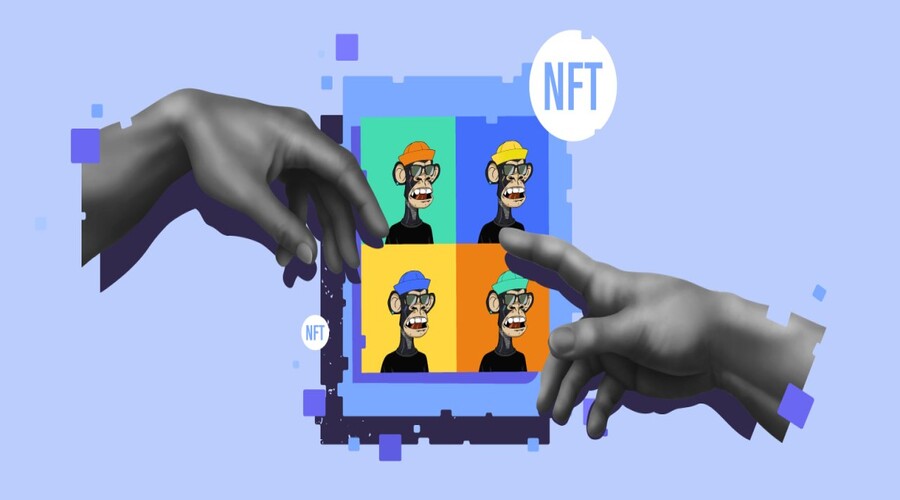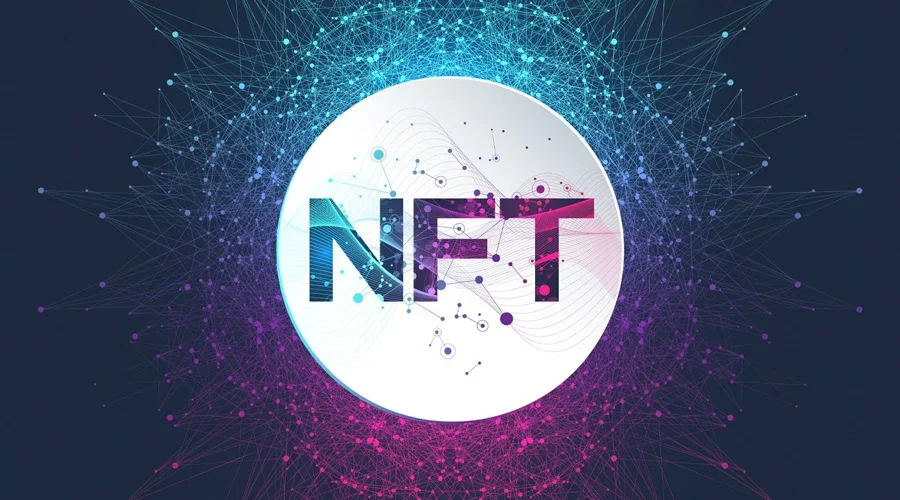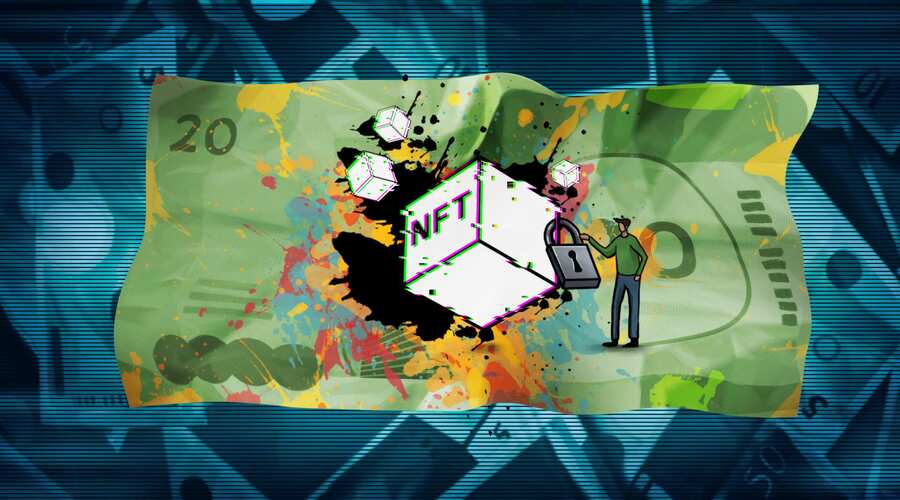In the digital age, social media has revolutionized the way we connect, communicate, and consume information. It has become an influential force that shapes our opinions, drives trends, and even impacts financial markets. One such market that has recently gained significant attention is the Non-Fungible Token (NFT) market. This article delves into the intricate relationship between social media influence and NFT market manipulation, highlighting the power online platforms wield in shaping this emerging industry.
Introduction
In the past few years, Non-Fungible Tokens (NFTs) have gained immense popularity. These unique digital assets, built on blockchain technology, have disrupted various industries, including art, music, and gaming. However, the NFT market is not immune to manipulation, and social media platforms play a significant role in amplifying such activities.
Understanding Social Media Influence
Social media platforms have become the go-to source for information, entertainment, and social interaction for billions of users worldwide. They have the power to sway public opinion, create viral trends, and influence consumer behavior. The ability to share content instantaneously and engage with a global audience has made social media a potent tool for both individuals and businesses.
The Rise of Non-Fungible Tokens (NFTs)
NFTs have revolutionized the way we perceive ownership and value in the digital realm. These unique tokens represent ownership or proof of authenticity of a specific digital asset, such as artwork, videos, or virtual real estate. The scarcity and uniqueness associated with NFTs have made them highly sought after by collectors and investors.
NFT Market Manipulation: Exploring the Dark Side
While the NFT market holds immense potential, it has also attracted individuals with malicious intent. Market manipulation tactics, such as pump-and-dump schemes, have infiltrated the NFT space, leading to artificial price inflation and market volatility. This manipulation undermines the trust and transparency that should be inherent in a healthy marketplace.
Social Media’s Role in NFT Market Manipulation
Social media platforms act as catalysts in the spread of NFT market manipulation. Influencers, celebrities, and industry experts utilize their massive followings to endorse certain NFT projects, driving up demand and prices. Unfortunately, some of these endorsements are not genuine, and their sole purpose is to manipulate the market for personal gain.
The Influence of Celebrity Endorsements
When a celebrity endorses an NFT project, it can create a frenzy among their followers and fans. The endorsement often leads to an influx of buyers, causing the prices of associated NFTs to skyrocket. However, these endorsements may not always be backed by genuine belief or understanding of the project, contributing to market manipulation.
Pump-and-Dump Schemes: A Closer Look
Pump-and-dump schemes have been a persistent issue in various financial markets, and the NFT market is no exception. In these schemes, manipulators artificially inflate the prices of specific NFTs by hyping them up on social media. Once the prices reach a peak, the manipulators sell their holdings, causing a massive price crash and leaving other investors with significant losses.
The Impact of Bots and Fake Accounts
Automated bots and fake accounts further exacerbate NFT market manipulation on social media platforms. These malicious actors create an illusion of high demand and popularity for specific NFT projects by engaging with posts, liking, and sharing content. This artificially inflates the perceived value of the projects, luring unsuspecting investors into the market.
Regulatory Challenges and Oversight
The nascent nature of the NFT market presents regulatory challenges. Authorities are grappling with establishing clear guidelines to combat market manipulation and protect investors. Regulating social media platforms to prevent the spread of false information and fraudulent activities related to NFTs is a complex task that requires cooperation between industry stakeholders and policymakers.
NFT Market: Transparency and Trust
To ensure the long-term viability of the NFT market, transparency and trust must be prioritized. Projects and platforms need to provide accurate and verifiable information about the assets being tokenized. Additionally, social media platforms must implement stricter measures to identify and remove fraudulent accounts and content that contribute to market manipulation.
The Future of NFTs and Social Media
As the NFT market continues to evolve, social media platforms will play a crucial role in shaping its future. Platforms must take responsibility for the content shared on their networks and implement proactive measures to prevent manipulation and fraud. By fostering transparency, trust, and accountability, social media can contribute to the growth of a healthy and sustainable NFT ecosystem.
The Role of Influencer Marketing
Influencer marketing has become a powerful tool for promoting NFT projects. Influencers with a large following and credibility can significantly impact the market by endorsing specific NFTs. However, it is essential to distinguish between genuine endorsements and paid promotions to avoid misleading investors.
Social Media Engagement and NFT Community Building
Social media platforms provide a space for NFT communities to connect, discuss, and share their experiences. Building a strong community is crucial for the success of NFT projects. Engaging with the community through social media can help creators gain traction, gather feedback, and establish a loyal following.
The Psychological Factors behind NFT Market Manipulation
Understanding the psychological factors driving NFT market manipulation is crucial. Greed, fear of missing out (FOMO), and herd mentality can all contribute to the manipulation of NFT prices. By exploring these factors, we can gain insights into the behaviors of both manipulators and investors.
Market Surveillance and Detection of Manipulative Practices
Detecting market manipulation in the fast-paced world of NFTs can be challenging. However, technological advancements, such as data analysis tools and blockchain analytics, can help identify suspicious activities and patterns. Implementing effective market surveillance measures can deter manipulators and protect the integrity of the NFT market.
Legal Implications and Enforcement
Market manipulation in the NFT space raises legal concerns. Authorities need to establish clear regulations and enforce them effectively. Legal frameworks can help prosecute manipulators and provide investors with a sense of security. However, striking the right balance between regulation and innovation remains a delicate challenge.
Investor Education and Awareness
Empowering investors with knowledge and awareness is vital for combating market manipulation. Educational initiatives can help individuals understand the risks associated with the NFT market and make informed investment decisions. Promoting transparency and providing resources to educate investors can contribute to a healthier and more sustainable market ecosystem.
Impact of Social Media Algorithms on NFT Market Trends

Social media algorithms play a significant role in shaping the visibility and reach of NFT-related content. Understanding how these algorithms prioritize and promote certain posts can help creators and investors navigate the competitive landscape of the NFT market. It is crucial to analyze the impact of algorithms on market trends and be mindful of their influence.
Ethical Considerations in NFT Market Promotion
As the NFT market continues to evolve, ethical considerations come into play. Creators and influencers need to ensure they are promoting NFT projects that align with their values and are genuinely beneficial to the community. Transparency, disclosure of potential conflicts of interest, and responsible promotion practices are essential for maintaining trust and integrity.
Building Trust through Verified Authenticity
- Verifying authenticity is a challenge in the NFT market.
- Blockchain technology provides transparent and immutable ownership records.
- Emphasizing verified authenticity builds trust and reduces fraud and manipulation risks.
Establishing Standards and Best Practices for NFT Marketplaces
- NFT marketplaces can promote transparency and protect users.
- Thorough vetting processes for listed NFTs ensure quality and authenticity.
- Clear guidelines for creators and investors establish responsible practices.
- User feedback mechanisms contribute to a reliable and reputable marketplace environment.
NFT Market Regulation: Striking the Balance
- Regulatory frameworks for the NFT market are in the early stages.
- Balancing innovation and investor protection is crucial.
- Collaboration with industry stakeholders and experts is necessary.
- Developing comprehensive guidelines fosters fair practices and responsible growth.
NFTs and the Democratization of Art
- NFTs have the potential to democratize the art world.
- They eliminate intermediaries and enable direct artist-to-audience connections.
- NFTs provide new opportunities for artists to showcase their work globally.
- Exploring NFTs’ impact on the art industry reveals positive transformation.
Building Trust through Verified Authenticity
Verifying the authenticity of digital assets is a critical challenge in the NFT market. With the rise of digital art and collectibles, it becomes essential for buyers and investors to have confidence in the legitimacy of the NFTs they are acquiring. This is where blockchain technology proves invaluable. By leveraging the transparent and immutable nature of the blockchain, NFTs can be tied to a unique cryptographic signature, providing a verifiable proof of ownership and authenticity. The decentralized nature of blockchain ensures that records cannot be tampered with, offering a level of trust and assurance in the NFT market. Emphasizing the importance of verified authenticity not only safeguards the interests of buyers but also promotes the growth and sustainability of the market as a whole.
Establishing Standards and Best Practices for NFT Marketplaces
To create a trustworthy and reliable environment for NFT transactions, it is crucial for NFT marketplaces to establish clear standards and best practices. Thorough vetting processes for listed NFTs can help ensure the quality, originality, and authenticity of the digital assets. Marketplaces can implement guidelines for creators and investors, emphasizing responsible practices such as providing accurate and comprehensive descriptions of NFTs, disclosing any potential rights or ownership issues, and adhering to ethical pricing strategies. User feedback mechanisms, such as ratings and reviews, can provide valuable insights and foster transparency within the marketplace. By establishing these standards and best practices, NFT marketplaces can build a reputation for integrity and attract a broader range of participants, further boosting the growth and credibility of the NFT ecosystem.
Conclusion
Social media’s influence on the NFT market cannot be underestimated. While it has facilitated the growth of this emerging industry, it has also exposed it to manipulation and fraud. It is crucial for regulators, platforms, and users to work together to combat market manipulation and ensure the long-term success of the NFT market.



